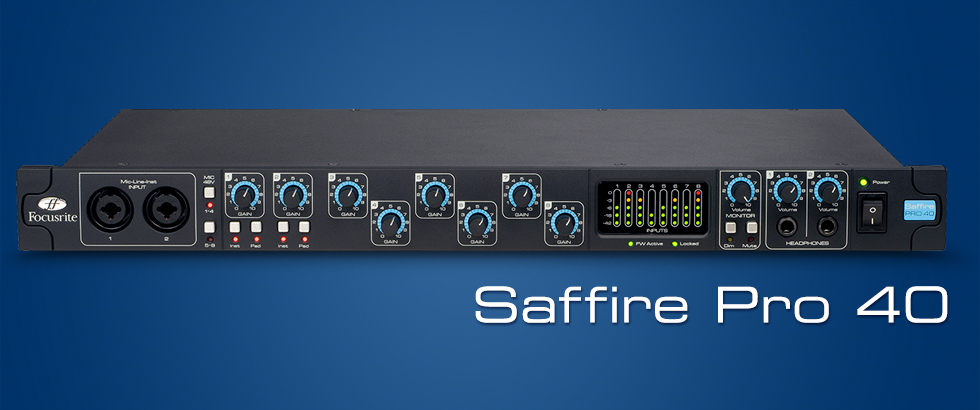Focusrite Saffire audio interface issue with windows, no sync and driver problem fix
Focusrite Saffire audio interface issue with windows, no sync and driver problem fix
It has nothing to do with modular but Focusrite don’t want to add this info on their site or their faq, so…
Basicly all new fresh windows 10 installations with a focusrite saffire pro 40 will need that driver, i think… It might be due to the fact there’s OEM versions of win 10 or something just not including that particular driver needed to run properly the focusrite interfaces using the firewire drivers.
I tried 3 different firewire cards on my asus motherboard z270 (it was working fine on a old asus p6t on board firewire). I also tried many drivers and settings in the bios. I now have the firewire card they suggest on their site but i’m sure almost any firewire card will work fine.
Issue is simply that there’s no lock activated on the focusrite, or no sync, it detects it in the device manager (no issues or alerts) but it doesnt work at all.
So as soon as installed it, everything went back to normal.
In my case i’m using the Saffire Pro 40 but i guess it happens also with other ones.
Here’s the link :
Please email me at matrixmodulator@gmail.com if you find more info about that or something i should mention about it on this page 🙂
Here’s the content of that page in case it goes offline. (below)
Also the files here.
FireWire port-based device does not work correctly in Windows 8.1 or Windows 8
Symptoms
Cause
Resolution
Update information
How to obtain this update
Microsoft Download Center
The following files are available for download from the Microsoft Download Center:
| Operating system | Update |
|---|---|
| All supported x86-based versions of Windows 8.1 or of Windows 8 |  Download the package now. Download the package now. |
| All supported x64-based versions of Windows 8.1 or of Windows 8 |  Download the package now. Download the package now. |
For more information about how to download Microsoft support files, click the following article number to view the article in the Microsoft Knowledge Base:
Microsoft scanned this file for viruses. Microsoft used the most current virus-detection software that was available on the date that the file was posted. The file is stored on security-enhanced servers that help prevent any unauthorized changes to the file.
Additional steps of configuration requirement
After you install the 1394 OHCI Legacy Driver.msi file, follow these steps:
- Right-click the Legacy1394.inf file under one of the following paths based on the computer’s architecture:
- C:\Program Files\1394 OHCI Compliant Host Controller (Legacy)\x86_driver
- C:\Program Files\1394 OHCI Compliant Host Controller (Legacy)\x64_driver
- Click Install.
- Open Device Manager in Control Panel.
- Expand IEEE 1394 Bus host controllers, and then locate the host controller.
- Right-click the host controller, and then click Update Driver Software.
The screen shot of the host controller and the Update Driver Software is listed in the following example:

- Click Browse my computer for driver software.
- Click Let me pick from a list of device drivers on my computer.
- Click Generic1394 OHCI compliant host controller (Legacy), and then click the Next button.
- Click the Close button.
Prerequisites
There are no prerequisites for installing this update.
Registry information
To apply this update, you do not have to make any changes to the registry.
Restart requirement
You have to restart the computer after you apply this update.
Update replacement information
This update does not replace a previously released update.
The global version of this hotfix installs files that have the attributes that are listed in the following tables. The dates and the times for these files are listed in Coordinated Universal Time (UTC). The dates and the times for these files on your local computer are displayed in your local time together with your current daylight saving time (DST) bias. Additionally, the dates and the times may change when you perform certain operations on the files.
Windows 8.1 and Windows 8 file information notes
The MANIFEST files (.manifest) and the MUM files (.mum) that are installed for each environment are not listed
For all supported x86-based versions of Windows 8.1 or of Windows 8
| File name | File version | File size | Date | Time | Platform |
|---|---|---|---|---|---|
| 1394_ohci_legacydriver.msi | Not Applicable | 208,896 | 15-Aug-2014 | 20:48 | Not Applicable |
For all supported x86-based versions of Windows 8.1 or of Windows 8
| File name | File version | File size | Date | Time | Platform |
|---|---|---|---|---|---|
| 1394_ohci_legacydriver.msi | Not Applicable | 208,896 | 15-Aug-2014 | 20:48 | Not Applicable |
Status
More Information
Steps of uninstalling the 1394 OHCI Legacy Driver.msi file
- Open Control Panel in the Category view.
- Click Uninstall a program in Control Panel.
- Right-click 1394 OHCI Compliant Host Controller (Legacy), and then click Uninstall.
The screen shot of uninstalling the 1394 OHCI Compliant Host Controller (Legacy) is listed in the following example:

Additional package information
- This driver is only intended to work with legacy 1394 host controllers. Therefore, you may experience lower transfer data rates than the 1394b driver.
- The driver is intended to resolve compatibility issues for 1394 peripherals on 1394b systems. If you are not experiencing these issues, you should continue to use inbox drivers that are provided in Windows 8.1 or Windows 8.
- You have to reinstall this stand-alone driver package if you upgrade to a newer operating system version in the future.
For more information about software update terminology, click the following article number to view the article in the Microsoft Knowledge Base:
Article ID: 2970191 – Last Review: Sep 10, 2014 – Revision: 1

